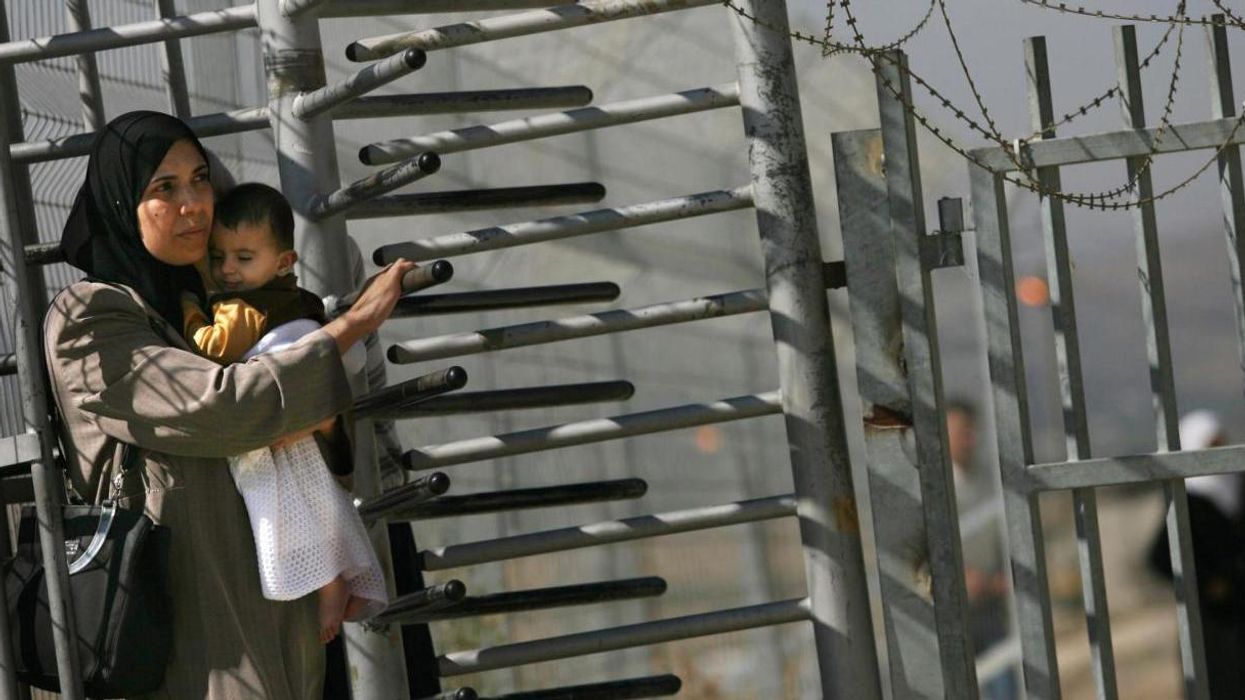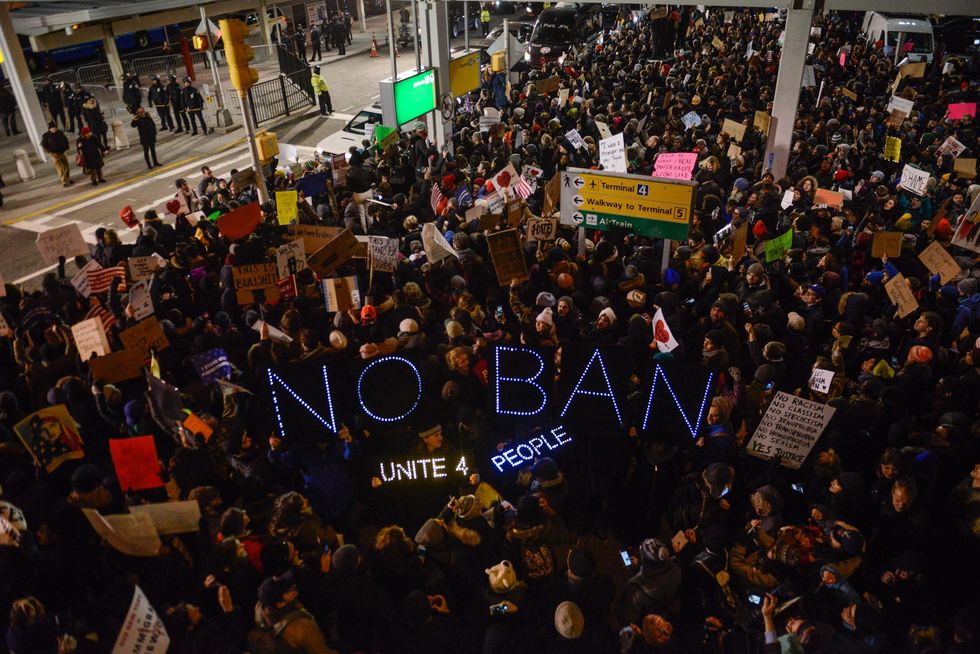Celebrities
Narjas Zatat
Jan 31, 2017

Picture:
Getty
Donald Trump’s ban on immigration from seven Muslim-majority countries prompted protests in the UK, the US and various other parts of the world.

Sally Yates was fired by the Trump administration as Acting Attorney General after she told justice department lawyers not to defend the order, calling on the department’s obligation to “stand for what is right”.
Reddit co-founder Alexis Ohanian called the ban un-American, and actors have used their platform to criticise the decision.
German Chancellor Angela Merkel reminded Donald Trump of foreign policy commitments vis-a-vis refugees:
The Geneva refugee convention requires the international community to take in war refugees on humanitarian grounds.
For Palestinians, freedom of movement is a challenge.
Palestine has been subject to over fifty years of Israeli military occupation.
According to an Amnesty report on the state of the world’s human rights:
In the occupied West Bank, Israel continued to promote illegal settlements and severely restricted the movement of Palestinians using an array of military checkpoints, barriers and a fence/wall stretching hundreds of kilometres.
Israeli law requires everyone to carry an ID pass - Israeli citizens and permanent residents tend to have a blue cover. Residents of the West Bank and the Gaza strip tend to have green covers.
Palestinians wishing to travel abroad are required to apply for a visa.
In the case of Hashem, his parents made an appointment with the US consulate in Jerusalem for Friday, so that they could travel to the US for their son’s graduation.
On Friday, when mosques in Jerusalem hold prayers, people over the age of 60 are generally allowed inside the city.
According to Hashem, despite the fact that both his mum (60) and his dad (65) had their permit, a letter from the US consulate and all other "proper documentation", the father was prevented from crossing the checkpoint at Bethlehem into Jerusalem.
As a result, they missed their appointment, and could not get a visa.
He talks about it in his Facebook post.
Here it is, in full:
A few days ago, my parents were on their way to a scheduled appointment with the U.S. consulate in Jerusalem to apply for a visa to attend my graduation in May. Palestinians are required by the Israeli occupation's military law to have a permit ready to present at the Israeli checkpoints. My parents had all proper documentation, yet my father was prevented from crossing the checkpoint. He missed his appointment in Jerusalem and was therefore not able to get the visa.
This is all to say that an Israeli ban against Palestinians of all faiths has been in place for decades, with little scrutiny from the international community. As a Palestinian, you can be banned from crossing a checkpoint, from entering a city, from traveling through an airport, and from leaving through the borders, only by virtue of being a Palestinian. Every time I decide to go home, I have to calculate: will I get in? Will I be able to leave? Will they interrogate me? Even if you are a 65-year-old parent, who only wishes to attend your son's graduation: your entire life is based on uncertainty; both time and space are constantly put in suspense.
This is neither to undermine the suffering of people directly affected by the ban, nor is it to dismiss the inspiring global resistance to the ban. Rather, it is to acknowledge that the inconsistency in the international community's (particularly the American public's) response establishes hierarchies of death and life--hierarchies that are the root of injustices witnessed in today's world. Puzzling that many of the American organizations protesting the #MuslimBan are simultaneously in support of Israeli policies. Perhaps, this selective fight against injustices in the world, which is so present in our world, is one reason why we got to where we are today. It is, perhaps, a reason why even the idea of a #MuslimBan has entered the global discourse with such vigor. Normalizing the banning of human beings anywhere is worthy of scrutiny, condemnation, and protest.
Justice will prevail.
Hashem told indy100 that his parents were successful in passing Bethlehem checkpoint on Tuesday, and he hopes they will be able to make his graduation ceremony in Earlham College, Indiana, where he became one of two Palestinians to be granted a Rhodes Scholarship.
Of Trump's America, he has one final observation:
For me, as a Palestinian student in the US, it is most frightening to see a reality on the verge of normalising a legal exclusion of a minority. In Palestine, you grew up under the law of the occupation and it becomes normalised. You know it is unjust, but it becomes a way of life. To think that this might become a reality in the US is frightening.
More: These illustrations explain Donald Trump's 'Muslim ban' perfectly
More: At Fox News, a 'Moroccan terror suspect' becomes a 'second man' once they're cleared of charges
Top 100
The Conversation (0)













